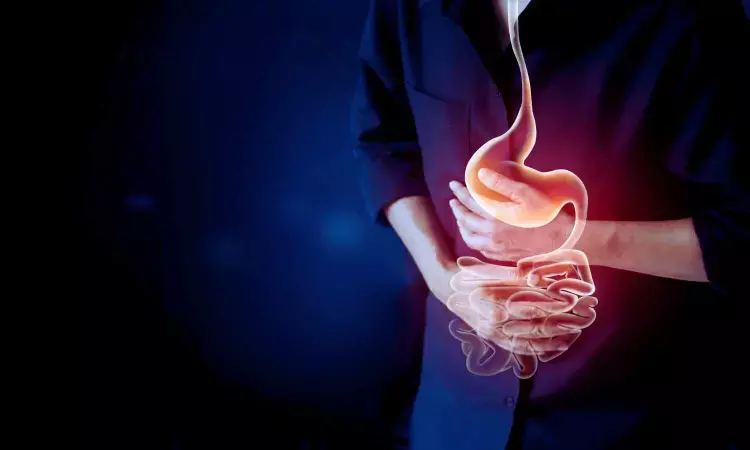- Home
- Medical news & Guidelines
- Anesthesiology
- Cardiology and CTVS
- Critical Care
- Dentistry
- Dermatology
- Diabetes and Endocrinology
- ENT
- Gastroenterology
- Medicine
- Nephrology
- Neurology
- Obstretics-Gynaecology
- Oncology
- Ophthalmology
- Orthopaedics
- Pediatrics-Neonatology
- Psychiatry
- Pulmonology
- Radiology
- Surgery
- Urology
- Laboratory Medicine
- Diet
- Nursing
- Paramedical
- Physiotherapy
- Health news
- Fact Check
- Bone Health Fact Check
- Brain Health Fact Check
- Cancer Related Fact Check
- Child Care Fact Check
- Dental and oral health fact check
- Diabetes and metabolic health fact check
- Diet and Nutrition Fact Check
- Eye and ENT Care Fact Check
- Fitness fact check
- Gut health fact check
- Heart health fact check
- Kidney health fact check
- Medical education fact check
- Men's health fact check
- Respiratory fact check
- Skin and hair care fact check
- Vaccine and Immunization fact check
- Women's health fact check
- AYUSH
- State News
- Andaman and Nicobar Islands
- Andhra Pradesh
- Arunachal Pradesh
- Assam
- Bihar
- Chandigarh
- Chattisgarh
- Dadra and Nagar Haveli
- Daman and Diu
- Delhi
- Goa
- Gujarat
- Haryana
- Himachal Pradesh
- Jammu & Kashmir
- Jharkhand
- Karnataka
- Kerala
- Ladakh
- Lakshadweep
- Madhya Pradesh
- Maharashtra
- Manipur
- Meghalaya
- Mizoram
- Nagaland
- Odisha
- Puducherry
- Punjab
- Rajasthan
- Sikkim
- Tamil Nadu
- Telangana
- Tripura
- Uttar Pradesh
- Uttrakhand
- West Bengal
- Medical Education
- Industry
Peptic ulcer does not significantly increase CVD risk, finds study

A new study published in the journal of Frontiers in Medicine showed that peptic ulcers (PU) were 31% more likely to occur in older persons with cardiovascular disease (CVD), although PU does not increase the incidence of CVD or worsen the prognosis for those who already have it.
Because of common risk factors such as age, smoking, NSAID usage, and 'Helicobacter pylori' infection, peptic ulcer and cardiovascular disease frequently coexist in the elderly. Peptic ulcer stress and chronic inflammation can worsen atherosclerosis, raising the risk of CVD. On the other hand, antiplatelet medications (like aspirin) that increase the risk of ulcer development and gastrointestinal bleeding are often used in the treatment of CVD.
This reciprocal link makes treatment more difficult for older individuals, necessitating a delicate balancing act between cardiovascular therapy and gastrointestinal protection. Because proton pump inhibitors (PPIs) are frequently used to lower ulcer risk in patients on heart medicines, an integrated, multidisciplinary approach to elder care is crucial. The influence on mortality risk and the association between PU and CVD in older persons are examined in this study.
Data from a national health survey of China's senior citizens was used in this investigation. There were 3,636 participants in this research. While PU had no discernible impact on the incidence of CVD (OR = 1.08, 95%CI 0.77-1.51, p = 0.64), CVD was substantially linked to an elevated risk of PU (OR = 1.31, 95%CI 1.03-1.66, p = 0.04).
When compared to the non-comorbid group, the mortality risk was considerably greater in the CVD group (HR = 1.22, 95%CI 1.03-1.45, p = 0.02). The death rates of the PU-only and combination PU-CVD groups did not vary significantly.
Among PU patients, stratified analysis revealed that male gender (HR = 1.29, 95%CI 1.05-1.62, p < 0.01) and advanced age (≥75 years) (HR = 1.45, 95%CI 1.06-1.87, p < 0.01) were significant mortality risk factors.
Overall, PU had no discernible effect on the prognosis of individuals with CVD or total mortality. Although PU increased the risk of CVD, CVD was not a substantial risk factor for PU. Male and older PU patients had a greater death risk. These results point to the necessity of age- and gender-stratified PU management plans for high-risk populations.
Reference:
He, L., Wang, Q., Qiu, Y., Shen, N., Pu, P., Wang, R., Miao, H., Zhang, H., Yu, X., Xiao, D., Xing, L., & Liu, Z. (2025). The relationship between peptic ulcer and cardiovascular disease in elderly population: A study on mortality and disease development. Frontiers in Medicine, 12, 1610867. https://doi.org/10.3389/fmed.2025.1610867
Neuroscience Masters graduate
Jacinthlyn Sylvia, a Neuroscience Master's graduate from Chennai has worked extensively in deciphering the neurobiology of cognition and motor control in aging. She also has spread-out exposure to Neurosurgery from her Bachelor’s. She is currently involved in active Neuro-Oncology research. She is an upcoming neuroscientist with a fiery passion for writing. Her news cover at Medical Dialogues feature recent discoveries and updates from the healthcare and biomedical research fields. She can be reached at editorial@medicaldialogues.in
Dr Kamal Kant Kohli-MBBS, DTCD- a chest specialist with more than 30 years of practice and a flair for writing clinical articles, Dr Kamal Kant Kohli joined Medical Dialogues as a Chief Editor of Medical News. Besides writing articles, as an editor, he proofreads and verifies all the medical content published on Medical Dialogues including those coming from journals, studies,medical conferences,guidelines etc. Email: drkohli@medicaldialogues.in. Contact no. 011-43720751


